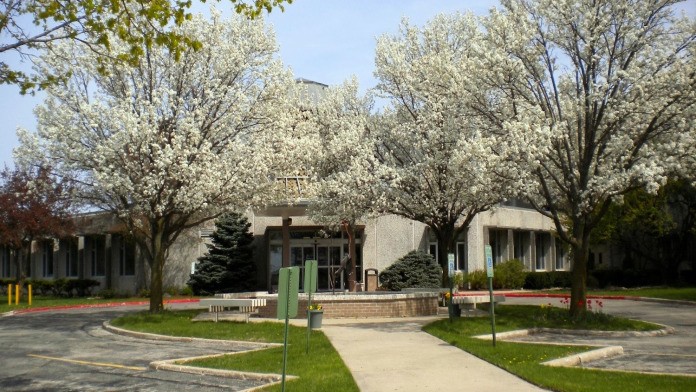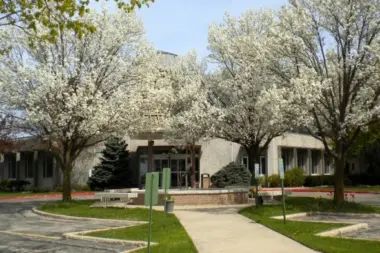About Lakeview Behavioral Health
Lakeview Behavioral Health is located in Waterford, Wisconsin. They provide acute inpatient psychiatric stabilization and intensive inpatient treatment for both adults and adolescents, with programs for addiction treatment, co-occurring disorders, and psychiatric issues.
Treatment provided for substance use disorders includes medical detoxification, dual diagnosis care and ongoing recovery support, with inpatient programs for adolescents addressing behavioral and emotional issues alongside substance abuse. I am pleased to learn that they integrate family involvement and education into their programming.
Support for TBI and Disabilities Offered Through Behavioral Health
Their behavioral health clinic also offers support for TBI and disabilities in addition to substance use disorder treatment, using evidence-based care provided by licensed clinical psychologists, nurses and therapists. In addition, they offer a partial hospitalization program that supports your needs during crisis stabilization for acute care.
Payments Accepted Through Most Insurance Plans with Verification Assistance
Payments for services include most insurance carriers and State-funded programs like Medicare and Medicaid. They also provide services to you to help with verifying benefits and securing pre-authorizations for admission.
Individualized Care That Goes Above and Beyond
Reviews for services at LBH are favorable, with former clients and their families reporting a compassionate, professional staff in a welcoming, supportive environment. Parents of young clients praise the youth program for the thorough communication and involvement in discharge planning. Others praise the staff for going “above and beyond” with their individualized care.
LBH is located on a large, tranquil campus in a rural setting, providing you with space for healing and privacy. They offer a secure, comfortable environment with separate treatment areas for adolescents and adults, as well as outdoor recreational areas for physical activity and therapy.
Their modern facility includes welcoming interior spaces designed for group sessions and therapeutic activities to help you on your journey toward recovery.
Latest Reviews
Lakeview Specialty Hospital and Rehab
Lakeview Specialty Hospital and Rehab
Lakeview Specialty Hospital and Rehab
Rehab Score
Gallery


Other Forms of Payment
Medicaid is a state based program that helps lower-income individuals and families pay for healthcare. Medicaid covers addiction treatment so those enrolled can use their coverage to pay for rehab. When a program accepts Medicaid the client often pays very little or nothing out of their own pocket.
Self-pay involves paying for treatment out of your own pocket. You can use savings or credit, get a personal loan, or receive help from family and friends to fund your treatment. If you don't have insurance or your insurance plan doesn't cover a specific program, self-pay can help ensure you still get the care you need.
Financial aid can take many forms. Centers may have grants or scholarships available to clients who meet eligibility requirements. Programs that receive SAMHSA grants may have financial aid available for those who need treatment as well. Grants and scholarships can help you pai for treatment without having to repay.
Sliding scale payments are based on a client's income and family size. The goal is to make treatment affordable to everyone. By taking these factors into account, addiction recovery care providers help ensure that your treatment does not become a financial burden to you or your family, eliminating one barrier to care.
Military members, veterans, and eligible dependents have access to specific insurance programs that help them get the care they need. TRICARE and VA insurance can help you access low cost or no cost addiction and mental health treatment. Programs that accept military insurance often have targeted treatment focused on the unique challenges military members, veterans, and their families face.
Medicare is a federal program that provides health insurance for those 65 and older. It also serves people under 65 with chronic and disabling health challenges. To use Medicare for addiction treatment you need to find a program that accepts Medicare and is in network with your plan. Out of pocket costs and preauthorization requirements vary, so always check with your provider.
Private insurance refers to any kind of healthcare coverage that isn't from the state or federal government. This includes individual and family plans offered by an employer or purchased from the Insurance Marketplace. Every plan will have different requirements and out of pocket costs so be sure to get the full details before you start treatment.
Addiction Treatments
Levels of Care
Residential treatment programs are those that offer housing and meals in addition to substance abuse treatment. Rehab facilities that offer residential treatment allow patients to focus solely on recovery, in an environment totally separate from their lives. Some rehab centers specialize in short-term residential treatment (a few days to a week or two), while others solely provide treatment on a long-term basis (several weeks to months). Some offer both, and tailor treatment to the patient's individual requirements.
Outpatient Programs (OP) are for those seeking mental rehab or drug rehab, but who also stay at home every night. The main difference between outpatient treatment (OP) and intensive outpatient treatment (IOP) lies in the amount of hours the patient spends at the facility. Most of the time an outpatient program is designed for someone who has completed an inpatient stay and is looking to continue their growth in recovery. Outpatient is not meant to be the starting point, it is commonly referred to as aftercare.
Treatments
Many of those suffering from addiction also suffer from mental or emotional illnesses like schizophrenia, bipolar disorder, depression, or anxiety disorders. Rehab and other substance abuse facilities treating those with a dual diagnosis or co-occurring disorder administer psychiatric treatment to address the person's mental health issue in addition to drug and alcohol rehabilitation.
Mental health rehabs focus on helping individuals recover from mental illnesses like bipolar disorder, clinical depression, anxiety disorders, schizophrenia, and more. Mental health professionals at these facilities are trained to understand and treat mental health issues, both in individual and group settings.
Programs
Adult rehab programs include therapies tailored to each client's specific needs, goals, and recovery progress. They are tailored to the specific challenges adult clients may face, including family and work pressures and commitments. From inpatient and residential treatment to various levels of outpatient services, there are many options available. Some facilities also help adults work through co-occurring conditions, like anxiety, that can accompany addiction.
Young adulthood can be an exciting, yet difficult, time of transition. Individuals in their late teens to mid-20s face unique stressors related to school, jobs, families, and social circles, which can lead to a rise in substance use. Rehab centers with dedicated young adult programs will include activities and amenities that cater to this age group, with an emphasis on specialized counseling, peer socialization, and ongoing aftercare.
Clinical Services
Cognitive Behavioral Therapy (CBT) is a therapy modality that focuses on the relationship between one's thoughts, feelings, and behaviors. It is used to establish and allow for healthy responses to thoughts and feelings (instead of unhealthy responses, like using drugs or alcohol). CBT has been proven effective for recovering addicts of all kinds, and is used to strengthen a patient's own self-awareness and ability to self-regulate. CBT allows individuals to monitor their own emotional state, become more adept at communicating with others, and manage stress without needing to engage in substance abuse.
Group therapy is any therapeutic work that happens in a group (not one-on-one). There are a number of different group therapy modalities, including support groups, experiential therapy, psycho-education, and more. Group therapy involves treatment as well as processing interaction between group members.
In individual therapy, a patient meets one-on-one with a trained psychologist or counselor. Therapy is a pivotal part of effective substance abuse treatment, as it often covers root causes of addiction, including challenges faced by the patient in their social, family, and work/school life.
Trauma therapy addresses traumatic incidents from a client's past that are likely affecting their present-day experience. Trauma is often one of the primary triggers and potential causes of addiction, and can stem from child sexual abuse, domestic violence, having a parent with a mental illness, losing one or both parents at a young age, teenage or adult sexual assault, or any number of other factors. The purpose of trauma therapy is to allow a patient to process trauma and move through and past it, with the help of trained and compassionate mental health professionals.
Staff

Christopher Slover
CEO

Andy Olivares
Administrator, COO

Lisa Hawkins
Hospital Nurse Manager

Alfred Habel, MD
Pulmonologist, Executive Medical Director

Mustansir Majeed, MD
President of MEC & Director of Clinic Services

Cindy Sorenson, PsyD
Clinical Director of Behavior Health Services
Contact Information
1701 Sharp Road
Waterford, WI 53185